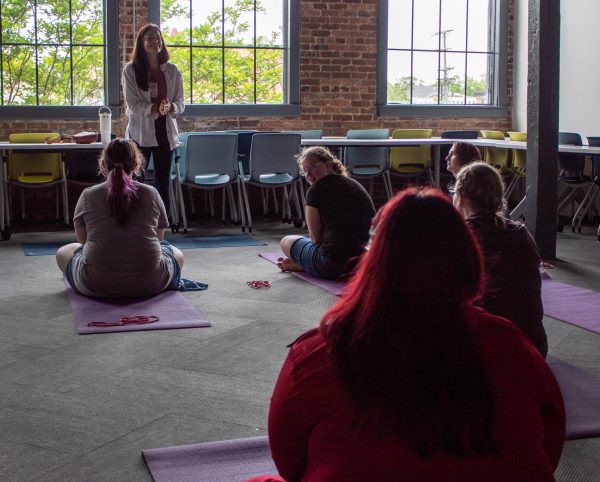Students use their Spring Break to volunteer
April 7, 2011
For spring break 2011, students were given the opportunity to volunteer for various projects across the country as opposed to the conventional way of spending spring break, which usually involves sunblock and flip-flops.
The program, which is an annual service and volunteer project of Alternative Break Board, is in its third year running, with a growing student interest for each trip. Students from all different cultures, backgrounds, and organizations come together to collaborate with existing help agencies in communities of need.
This year, 24 students and four staff members traveled to Texas, South Dakota, Tennessee, and North Carolina. The students will spend their time performing acts of services to improve the community, such as farming, rebuilding, and outreach programs.
Kristin Gargus, a student site leader, traveled to Pine Ridge, South Dakota, where she worked with Remember organization, which is a non-profit agency for the Indian reservation.
The Pine Ridge territory is equivalent to a third world country because of the poverty, crime, and suicide rates. This was Gargus’s third trip, and her second time being a site leader.
Kaylie Watts, student president of Alternative Break Board, is in her third year of Alternative Spring Break.
“There has never been a student that hasn’t liked a trip.”
While most of the students’ time is consumed with scheduled activities, it’s not all work and no play. Jennifer Brown, assistant director of leadership and volunteerism for the Office of Student Engagement, said that the students definitely get some down time.
They have reflection, which is a time for them to think and share their experiences;=, what they learned and how they feel. Students also get tour the area, see the sites and have a little fun at night after all the work is finished for the day. Brown also states that a majority of the money is generated from fundraising. This year students had the opportunity to raise money by selling tickets for local restaurants and fast-food joints.
“We try to make our trips as cheap as possible,” she said.
Brown thinks that this is a great way for students to learn about real life situations from first-hand experience.
“It breaks down the importance of the little things, things that we normally take for granted. We’re trying to achieve for students to become more active in service and to bring service back to the Florence community.”










